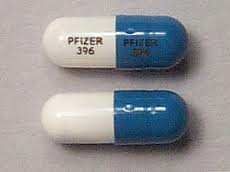Caffeine One of Several Compounds That May Protect Against Dementia
A 2017 article by Yousuf O. Ali and colleagues in the journal Scientific Reports finds that 24 different compounds may boost a brain enzyme that protects against dementia. The enzyme, NMNAT2, protects neurons from stress and combats misfolded proteins called tau that form plaques in the brain as people age.
Ali and colleagues screened 1280 compounds to identify those that might increase NMNAT2 production. Twenty-four of these looked promising, including caffeine and rolipram, an “orphaned drug” once studied as an antidepressant but discontinued in the 1990s. Others with weaker effects on NMNAT2 production included the atypical antipsychotic ziprasidone, cantharidin (a wart-removing substance secreted by blister beetles), fungal metabolite wortmannin, and retinoic acid, a vitamin A derivative. Thirteen of the compounds tested decreased NMNAT2 production.
The researchers followed up the caffeine finding by testing caffeine in mice genetically engineered to produce less NMNAT2. The caffeine administration normalized NMNAT2 production levels in these mice.
Senior researcher Hui-Chen Lu hopes this research will lead to the development of new drugs that can create a chemical blockade against the effects of neurodegenerative illnesses.
Mixed Depression
Mixed depression describes a state of depression accompanied by a few symptoms typically associated with mania. At the 2015 meeting of the International Society for Bipolar Disorders, researcher Roger McIntyre shared some findings about mixed depression.
People with mixed depression have higher levels of MHPG, which is produced as the neurotransmitter norepinephrine breaks down. They also have higher levels of the stress hormone cortisol and their depressions are more difficult to treat. Those with unipolar mixed depression may respond poorly to traditional antidepressants.
There are also medical risks associated with mixed depression. People with mixed depression are more susceptible to cardiovascular disease than are people with depressive symptoms alone.
The drugs lurasidone, olanzepine, and ziprasidone have each shown efficacy in mixed depression.
Ziprasidone Added to Escitalopram Improved Unipolar Depression
In a new study of patients with major depressive disorder who did not improve after eight weeks of the selective serotonin reuptake inhibitor (SSRI) antidepressant escitalopram, the addition of the atypical antipsychotic ziprasidone improved their depression more than did placebo. Patients took the combination of escitalopram (20mg/day on average) and ziprasidone twice a day at doses of 20–80 mg.
This was the first randomized, double-blind placebo controlled trial of ziprasidone as an adjunct treatment for unipolar depression. While ziprasidone was more efficacious than placebo, discontinuation of the study due to intolerance was higher among the patients who received ziprasidone.
Editor’s Note: Two atypical antipsychotics (quetiapine and aripiprazole) have been approved by the Federal Drug Administration for augmentation of antidepressants in unipolar depression. Now there have also been placebo-controlled positive trials of two others (ziprasidone and cariprazine).
These findings are of particular interest as the studies of ziprasidone monotherapy in bipolar depression not only failed, but response to ziprasidone and placebo was virtually identical (and negligible).
Dosing and Efficacy of Ziprasidone in Adolescents
 At the 57th Annual Meeting of the American Academy of Child and Adolescent Psychiatry (AACAP) in October 2010, Kirti Saxena of Dallas, Texas described a small pilot study that compared rapid- and slow-dose titration of ziprasidone in adolescent patients with bipolar disorder. Both slow and rapid methods of increasing doses resulted in effective treatment of acute manic symptoms, with rapid dose increases achieving improvement slightly faster.
At the 57th Annual Meeting of the American Academy of Child and Adolescent Psychiatry (AACAP) in October 2010, Kirti Saxena of Dallas, Texas described a small pilot study that compared rapid- and slow-dose titration of ziprasidone in adolescent patients with bipolar disorder. Both slow and rapid methods of increasing doses resulted in effective treatment of acute manic symptoms, with rapid dose increases achieving improvement slightly faster.
Editor’s Note: Given the data from patients with schizophrenia that higher doses of ziprasidone are better tolerated than lower doses, rapid dose titration toward 160mg/day or higher in manic patients may be best, because low doses can be associated with agitation or excitation in some patients.
If ziprasidone is being used, it is important that it is taken with food and not on an empty stomach, because its bioavailability and ability to increase blood levels is highly dependent on its being absorbed with food. The variability of ziprasidone’s effectiveness based on whether it is taken with food might explain some inconsistencies in the findings on ziprasidone in the treatment of some syndromes.
Two potential concerns about ziprasidone are worth noting. 1) It has not been approved by the Federal Drug Administration (FDA) for the treatment of acute mania in children or adolescents, even though the placebo-controlled trials were positive. A further review of the data by the FDA is pending. 2) The drug is associated with prolongation of the QTC interval, a measure of electrical activity in the heart. Such a prolongation theoretically predisposes patients to cardiac arrhythmias. However, in clinical follow up studies in adults and children, this has not proven to be problematic, and a study comparing 9,000 adults on olanzapine (which does not increase the QTC interval) and ziprasidone (which does) showed equal degrees of adverse cardiovascular events.
Ziprasidone is clearly worthy of consideration for treating adolescents, because it does not cause weight gain, nor does it increase any of the metabolic indices, such as cholesterol, triglycerides, blood glucose, or insulin resistance, as seen with some of the other atypical antipsychotics. Ziprasidone has recently been FDA-approved as an adjunct to lithium or valproate in prophylactic treatment of adult bipolar disorder.
Ziprasidone Improves Mood With Possible Weight Loss Side Effects
 In an open study of bipolar disorder treatment, Shefali Srivastava, Terence Ketter and colleagues at Stanford University evaluated ziprasidone as an aid to patients unresponsive to other medications. This study was part of the multi-center research program Systematic Treatment and Evaluation Program for Bipolar Disorder, or STEP-BD. During naturalistic treatment, ziprasidone was added to an average of 3.6 other psychotropic medications and 1.2 other nonpsychotropic medications patients had already been prescribed. The researchers found substantial improvement in mood with ziprasidone, particularly in the patients who had symptomatic levels of depression at baseline. The research team also observed a mean weight decrease from 195 + 50lbs at baseline to 183 + 47lbs at the final visit, with 34.3% of the patients achieving at least a 7% weight loss with ziprasidone.
In an open study of bipolar disorder treatment, Shefali Srivastava, Terence Ketter and colleagues at Stanford University evaluated ziprasidone as an aid to patients unresponsive to other medications. This study was part of the multi-center research program Systematic Treatment and Evaluation Program for Bipolar Disorder, or STEP-BD. During naturalistic treatment, ziprasidone was added to an average of 3.6 other psychotropic medications and 1.2 other nonpsychotropic medications patients had already been prescribed. The researchers found substantial improvement in mood with ziprasidone, particularly in the patients who had symptomatic levels of depression at baseline. The research team also observed a mean weight decrease from 195 + 50lbs at baseline to 183 + 47lbs at the final visit, with 34.3% of the patients achieving at least a 7% weight loss with ziprasidone.
Mean trial duration was 860 + 700 days, with no subsequent psychotropic agents added in 51.2% of the patients who had a mean trial duration of 221 + 272 days. Ziprasidone was discontinued in 57.3% of the 82 trials after a mean of 208 + 364 days. This was due to side effects in 26.8% of the participants and due to inefficacy for mood in 23.2%.
The investigators concluded that in bipolar patients treated naturalistically with complex pharmacotherapy, ziprasidone decreased overall bipolar illness severity, was helpful in patients with substantial depression at baseline, and also yielded clinically significant weight loss in about one-third of the patients.
Editor’s note: These data are notable because they support ziprasidone’s pattern of weight neutrality and because of the overall improvement in mood symptomatology the drug brought about. Read more
Ziprasidone Does Not Seem to Cause Arrhythmias, As Once Feared
A comprehensive review of ziprasidone’s effect on the QTc interval, a measure of electrical activity in the heart, has been completed by John Kane of the Zucker Hillside Hospital in Glen Oaks, NY. He and his colleagues reviewed relevant data that had been published over the past decade. Ziprasidone can prolong the QTc interval, which theoretically puts a person at risk for cardiac arrhythmias. Kane and colleagues concluded that the effect of ziprasidone on the QTc interval is related to dose and to the patient’s baseline QTc interval.
The QTc prolongation appears to plateau at the higher end of the usual clinical dose range of ziprasidone. In their review, the researchers found no cases of a QTc interval greater than 480 milliseconds, which is thought to be the threshold for developing vulnerability to arrhythmias. Additionally, no deaths were attributed to ziprasidone in any of the studies reviewed.
Ziprasidone side effects differ in different mood states
Keming Gao from Case-Western Reserve University reviewed the adverse effects of ziprasidone monotherapy in the treatment of patients with bipolar depression, mania, or schizophrenia. Gao noted that akathisia (restless legs) and other extrapyramidal side effects (such as tremor or speech problems) during mania were more common among patients on ziprasidone than among those on placebo, and these effects were more often found in patients with mania than those with depression.
Editor’s note: The finding that these extrapyramidal side effects are more common during mania is interesting because it runs contrary to findings on another atypical antipsychotic, aripiprazole. Aripiprazole is a partial dopamine agonist, meaning it partially activates dopamine receptors, and bipolar depressed patients on aripiprazole experience more akathisia than patients taking aripiprazole for mania or schizophrenia do.
Ziprasidone fully blocks dopamine receptors, and this may explain why its effects on dopamine turnover may, in contrast to aripiprazole, convey greater risk for extrapyramidal side effects in mania than in depression. This is unusual since most side effects tend to be more prominent during the depressive phases than manic phases of the illness. The reasons for this reversal with ziprasidone deserve further investigation and clarification.
Dopamine D2 and D3 Agonist Pramipexole May Enhance Cognitive Function in Bipolar I Disorder
Anil Malhotra from the Zucker Hillside Hospital found that pramipexole (Mirapex), a dopamine D2 and D3 agonist used in the treatment of Parkinson’s disease, improved measures of processing speed and working memory in euthymic bipolar patients (whose average age was 42) when compared with placebo in an adjunctive clinical trial.
Editor’s Note: Bipolar patients in a euthymic phase have consistently been shown to have some degree of cognitive dysfunction that is typically correlated with the number of prior depressive and/or manic episodes they have experienced. This is one of the first studies to directly target this cognitive dysfunction with a pharmacotherapeutic agent.
Pramipexole may be of additional value among depressed patients, because in two small, placebo-controlled studies, one led by Carlos Zarate at the National Institute of Mental Health and one led by Joseph F. Goldberg in New York, pramipexole has been shown to exert acute antidepressant effects in bipolar patients in the depressive phase of the illness. The new data from Malhotra raise the possibility that there could be a two-for-one benefit when pramipexole is used in the depressive phase of bipolar illness—improvement in both depression and cognition.
Other approaches to improving cognition in patients with bipolar disorder
Aripiprazole and Ziprasidone Are Two of the Best-Tolerated Atypicals
We’ve recently posted about some of the reasons aripiprazole and ziprasidone can make good choices for treatment.
Read about aripiprazole here and here.
Read about ziprasidone here.
Reconsidering Ziprasidone (Geodon) for Kids with Bipolar Disorder
Ziprasidone has shown efficacy in pediatric BP I disorder (ages 10 to 17). Its metabolic profile is the most benign of the atypical antipsychotics, including being the only one that does not produce weight gain in children. None of the other metabolic indices increased either.
This drug is currently rarely used in children because of concerns about its effects on electrocardiogram (EKG), which have rarely been seen in clinical practice. Perhaps the overall assessment of its risk/benefit ratio should be re-evaluated.
We’ve posted before about ziprasidone’s benign side effects profile.






